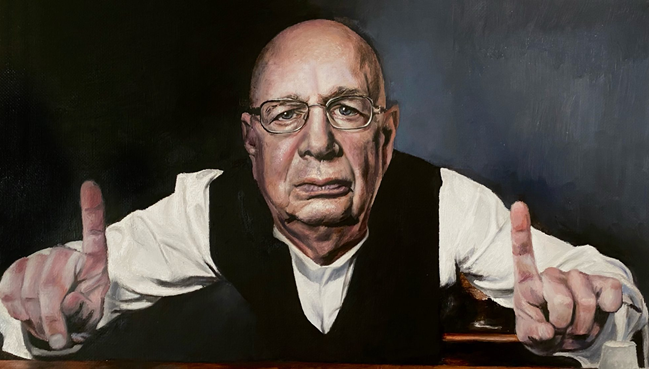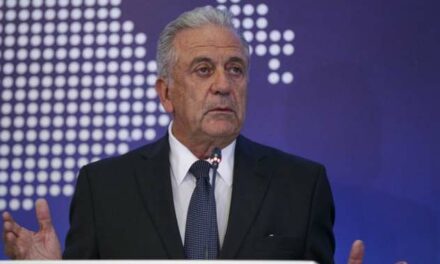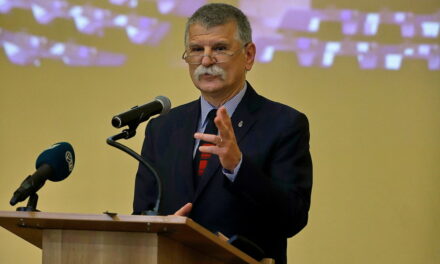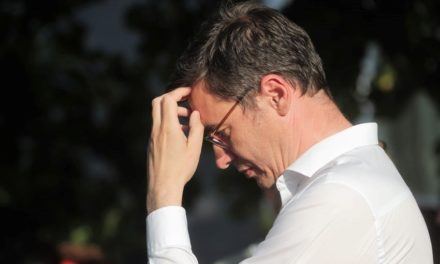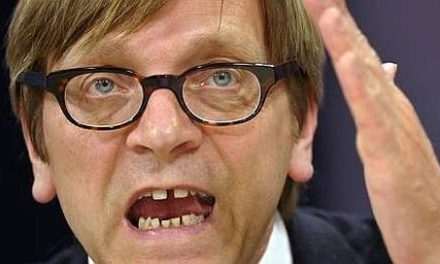The influence of the Davos elite is now decisive for the decisions of individual states and the union. Written by Tamás Fricz.
The Russian-Ukrainian war seems to have two actors: Russia and Ukraine. At the same time, the lambs not born today are fully aware – as Viktor Orbán clearly indicated on several occasions – that this war is actually taking place between two military superpowers, the United States and Russia. By the way, I actually consider this to be a semi-proxy war, since Russia is "one-to-one" in the war: they started it, they continue it, no one "replaces" them. The United States, on the other hand, yes, Ukraine, and it has been said many times that the Americans are fighting the Russians to the last Ukrainian blood.
I would add to this that the European Union, which is now totally subjugated to the United States, is "fighting" against Russia to the last weapon, tank and other military means capable of killing people.
The union as such has lost its raison d'être, because it is no longer an independent international entity, but subordinate to an overseas superpower. The shocking statement made by Commission President Ursula von der Leyen at the Munich Security Conference is a clear proof of this, according to which Brussels leaders discussed possible sanctions against Russia with American leaders as early as December 2021, i.e. before the outbreak of war (!).
If the president of one of the EU's leading organizations is the first to negotiate with a distant great power about what sanctions the EU should implement in the event of war, rather than in the European Council - which is the true leading institution of the Union - with the European heads of state and government, then its organization essentially ends there and then.
Because from then on, the will of a foreign superpower dominates the union, they make the really important decisions, not the leaders of the union, that is, the EU becomes a "subunit" of a larger international power - and thus the meaning of its operation is called into question.All the more so because the leaders of key member states such as Germany and France also meet American expectations one by one. Olaf Scholz went from helmets to Leopard tanks, but at the same time, President Macron quietly noted that the goal is to continue the war and defeat Russia, but Russia should not be completely destroyed. He immediately received a "correction" from Zelensky that Macron was only wasting his time by calling for a dialogue with Russia. This does not make any sense, said the confident Ukrainian president, and since then Macron has been speaking more cautiously.
But there is something else here, which, unfortunately, we don't talk about much in connection with the year-long war.
And this is the fact that there are not four actors in the war - Russia, the United States, the European Union, Ukraine - but five. And this fifth is none other than the global ruling elite, especially its current flagship, the World Economic Forum (WEF), also known as the Davos elite. The influence of which is now decisive for individual states, governments and European politicians, even for the decisions of the Biden administration.
Based on various surveys and information, behind the Davos elite led by Klaus Schwab, the WEF, there are about 1,600 (!) multinational and giant companies, so far 364 government politicians have been in contact with them, participated in their meetings, and the leaders of 246 "civil organizations" - NGOs - visited Davos , and which is at least as important data: 234 press and media editors are connected to the forum. At their most recent meeting this year, 52 heads of state and government, 19 central bank presidents, six hundred large company leaders and 110 billion personalities took part.
These data speak for themselves. It is now clear that the global financial and political elite has acknowledged and accepted the role of the World Economic Forum as a sort of governing, quasi-world government.A few days later, the World Government Summit was held in Dubai, where people who often do this at WEF meetings also spoke. Among others, Klaus Schwab himself gave a lecture, but in addition to him, for example, António Guterres, the Secretary General of the UN, billionaire Elon Musk, who now owns SpaceX and Tesla as well as Twitter, or Tedros Gebrejesus, who is the WHO's He is the president of the UN health organization. It does not hurt to know about him that in his previous era he was the leader of the Ethiopian Communist Party, an organization classified as a terrorist organization by the Americans. Gebrejesus does not have a medical degree, but he has excellent supporters in the global elite, such as Bill Gates and his foundation.
The greatest force in the WEF is the financial and economic elite, and the power of financial and economic multi-companies is so great that they influence and even determine how European politicians, heads of state and government decide on fundamental issues, for example how to approach the to the Russian-Ukrainian war, do they want peace or, on the contrary, should they stand for the continuation of the war to the end.The two largest asset managers in the world, BlackRock and Vanguard, are also members of the World Economic Forum, and Larry Fink, the chairman of BlackRock, is a member of the board of trustees governing the WEF. (I note here that Ursula von der Leyen, among others, is a member of the board of trustees, who is committed to both the American Democrats and the global financial elite.) But the bottom line: German economist and writer Ernst Wolff described that BlackRock became the world's largest asset manager, when the Rothschild dynasty transferred 2.8 trillion dollars to BlackRock's account, certainly not in a purely "philanthropic" - like Soros - way. This is why they say: it's that easy... (The Rothschilds are also behind the WEF, of course.) It is typical of the power relations (source still Ernst Wolff) that the combined assets of BlackRock and Vanguard are greater than the assets of all states, except for China and the United States. However, the ten largest global asset managers (Fidelity, State Street, etc.) manage $45 trillion, which is more than the combined GDP of the USA, China, Japan and Germany.
The shares of BlackRock and Vanguard (the Rothschilds are also present in the latter) dominate almost all other asset managers, multi-companies and IT giants such as Microsoft, Apple, Alphabet, Amazon and Facebook. This also means that IT and financial companies are almost merging, that is, Big Data and Big Money are merging with each other and gaining more power than anything known so far.
After that, I ask: do these financial and economic giants possibly have an influence on whether the Russian-Ukrainian war continues or stops? I think yes. I would like to note here that BlackRock - in addition to giving direct advice to the European Commission, sorry, "consulting" on the right decisions - has been continuously negotiating with Zelenskyi for quite some time about how and in what way the giant will participate, and is already participating in the recovery of the Ukrainian economy from the crisis.
In addition, quite a few of those 1,600 multinational companies have been present in Ukraine for a long time, if only because Ukraine is an excellent "hunting ground" for giant companies both in terms of energy resources and agricultural products, but also in other areas, and they have used and are using this opportunity. . Of course, we also find György Soros as a prominent investor in this circle of interests, who has been investing in Ukraine for thirty years now, with considerable profit - "philanthropically" of course.And after that, in 2022 and 2023, Soros will say at the Davos forum that Russia must be crushed, that the war must be carried to the final victory. And Sanna Marin, a WEF student and, by the way, the Prime Minister of Finland at this time, declares at the forum that the war should be continued for 15 years or more if necessary.
I would simply summarize the above: in the war - more precisely in the wars - the global financial and economic elite is at least as important, if not more important, than, for example, Germany or France, not to mention the disintegrated, essentially non-existent union.And we analysts have to put this aspect into the motivations and factors of the war if we really want to see the drivers and possible developments.
Tamás Fricz / Hungarian Nation
Featured image: Twitter

